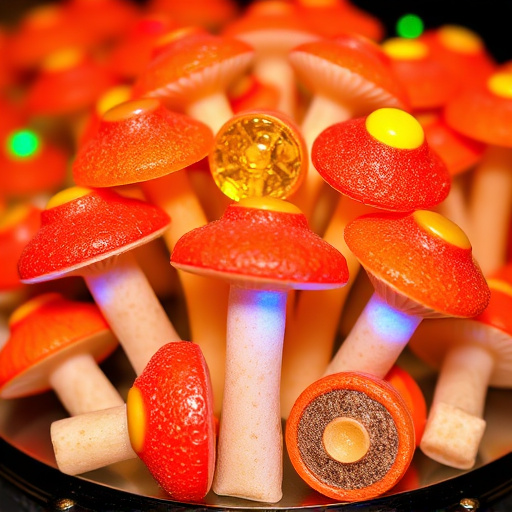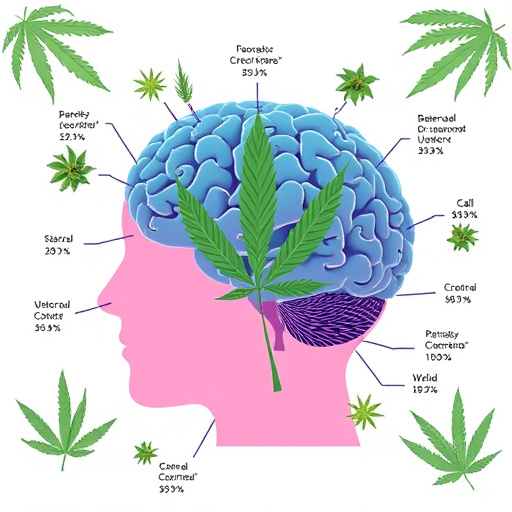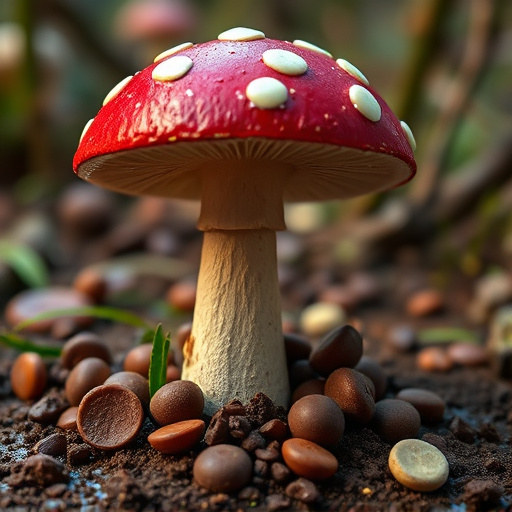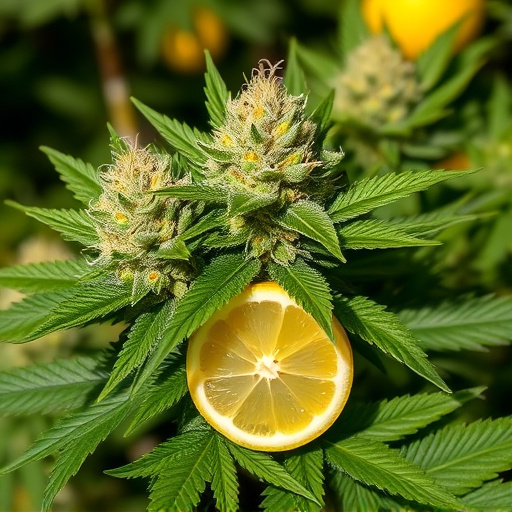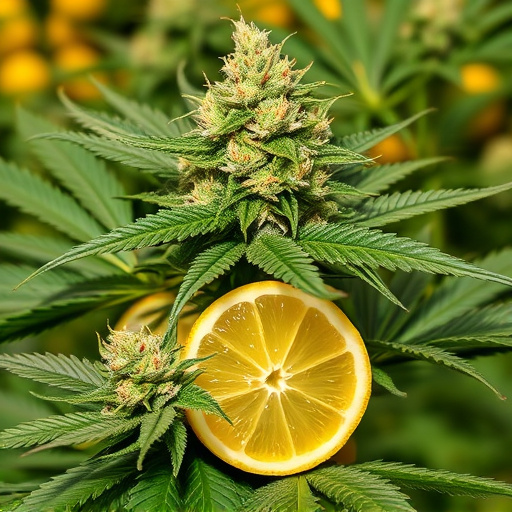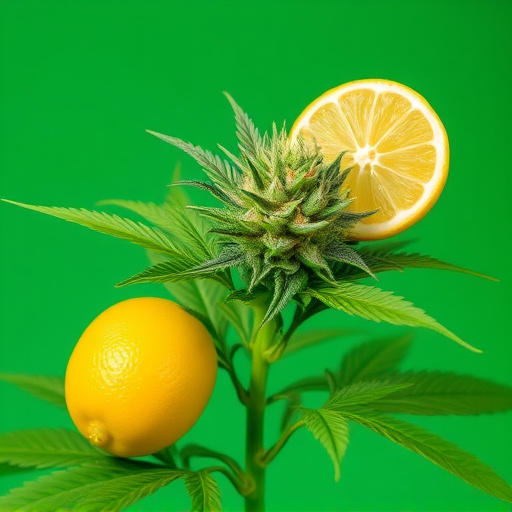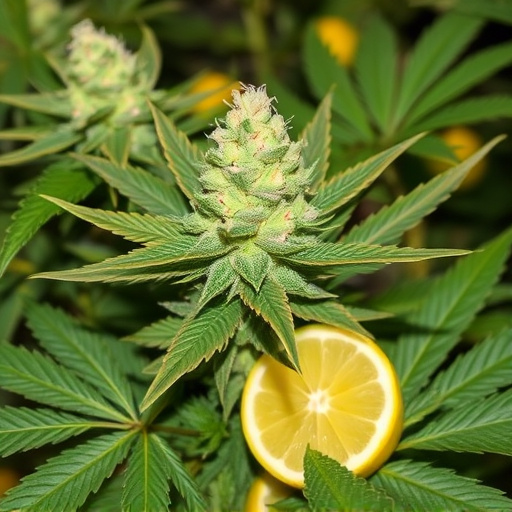The impact of cannabis on individuals varies greatly due to complex interactions between genetics, environment, and psychology. Each person's endocannabinoid system (ECS), influenced by their unique genetic makeup, regulates mood, memory, appetite, and pain perception, leading to varied reactions to cannabis. Lemon cannabis strains, characterized by high CBD content and milder psychoactivity, offer uplifting and calming effects due to their distinct terpene profile, particularly limonene. These strains are popular for enhancing creativity, focus, and well-being while avoiding heavy sedative effects, appealing to those seeking natural alternatives for stress, depression, and improved mood.
“Discover why weed affects everyone uniquely. Despite popular belief, the ‘high’ from cannabis isn’t a universal experience. In this article, we explore the science behind individual reactions to cannabis, delving into genetics and environmental factors that shape our experiences. From the vibrant landscape of lemon cannabis strains to their distinct effects, understanding these variations can help navigate and optimize your next session. Uncover why some find relaxation while others experience creativity boosts or even different medicinal benefits.”
- The Science Behind Individual Reactions to Cannabis
- Factors Influencing the 'High': From Genetics to Setting
- Exploring the Unique Effects of Lemon Cannabis Strains
The Science Behind Individual Reactions to Cannabis
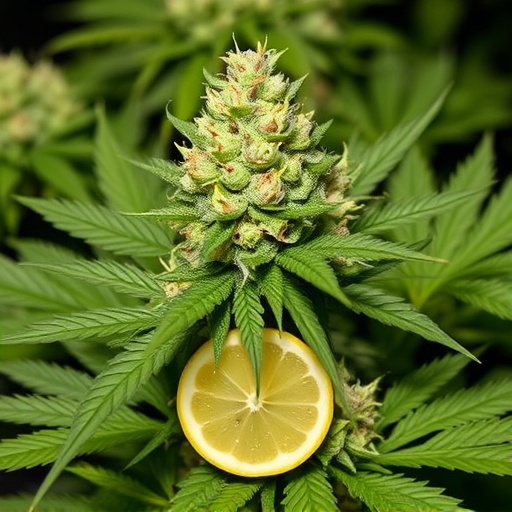
The way cannabis affects individuals can vary greatly, and science is still unraveling the complex reasons behind these differences. One significant factor contributing to these variations is genetics. Each person’s endocannabinoid system (ECS), responsible for regulating mood, memory, appetite, and pain perception, functions uniquely due to genetic predispositions. This means that an individual’s ECS may interact with cannabis compounds differently, leading to varied reactions.
Furthermore, the specific chemical composition of cannabis plays a crucial role. Different strains, such as lemon cannabis strains, offer diverse profiles of cannabinoids like THC (tetrahydrocannabinol) and CBD (cannabidiol), each with distinct effects on the body. Lemon strains, known for their uplifting and calming properties, may produce milder psychoactivity due to higher CBD content, making them ideal for those seeking a more subtle high. The unique interplay between these compounds and an individual’s ECS contributes to the diverse experiences cannabis users encounter.
Factors Influencing the 'High': From Genetics to Setting
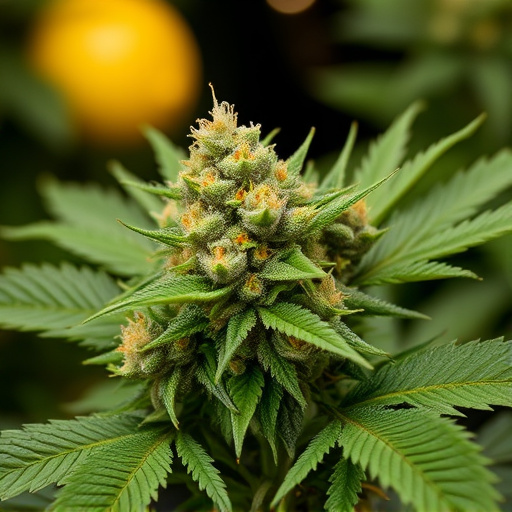
The experience of getting high on cannabis can vary greatly from one person to another, and this is largely influenced by a combination of factors. One of the most significant contributors is genetics; individuals with specific genetic makeup may metabolize cannabis differently, leading to varied effects. For instance, some people might be more sensitive to THC, the primary psychoactive compound in cannabis, resulting in stronger feelings of euphoria or anxiety. Conversely, others could have a higher tolerance due to genetic predisposition, requiring higher doses to achieve the same effect.
The environment and setting where one consumes cannabis also play a crucial role. The ambiance, including lighting, music, and surroundings, can significantly impact the perceived intensity of the high. For example, a relaxed atmosphere with calming music might enhance the sedative effects of certain lemon cannabis strains, while a lively, social setting could amplify the energetic and uplifting sensations associated with other varieties. Additionally, individual expectations and prior experiences shape how one perceives and reacts to the effects of cannabis.
Exploring the Unique Effects of Lemon Cannabis Strains
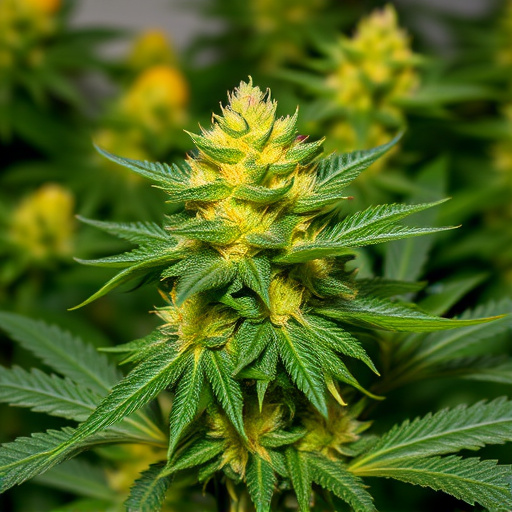
Lemon cannabis strains have gained a reputation for their distinctive, uplifting effects that differ from other varieties. This is largely due to their unique terpene profile, with limonene being the star component. Limonene, known for its citrusy aroma and flavor, has been linked to enhanced mood, reduced anxiety, and even potential anti-inflammatory properties. When consumed, it can evoke feelings of euphoria and clarity, making lemon strains popular among those seeking a more uplifting and energizing high without the heavy sedative effects often associated with cannabis.
The experience of using lemon cannabis strains is often described as invigorating and refreshing. The mental effects can include heightened creativity, improved focus, and an overall sense of well-being. These strains are particularly appealing to individuals looking for a natural way to boost their mood or alleviate symptoms of stress and depression without relying on traditional medications. Moreover, the physical sensations, such as increased heart rate and appetite stimulation, contribute to a balanced and pleasant high, making lemon cannabis strains a game-changer for users seeking a tailored and unique cannabis experience.
Cannabis, particularly lemon cannabis strains, affects individuals uniquely due to a complex interplay of genetic predisposition and environmental context. Understanding this variability is essential in both personal cannabis consumption and regulatory frameworks. The science behind these individual reactions continues to evolve, revealing the intricate relationship between genetics, biochemistry, and setting. This knowledge empowers users to make informed choices and encourages further research into personalized medicine for cannabis-based therapies, ensuring that everyone can enjoy—or choose to avoid—the effects of this versatile plant safely and responsibly.


